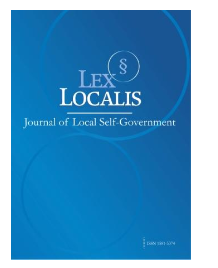IDENTITY POLITICS IN THE SYSTEM OF REGIONAL HEAD ELECTIONS IN A DEMOCRATIC RULE OF LAW STATE
DOI:
https://doi.org/10.52152/8wkrh774Keywords:
identity politics, general elections, regional head, democratic governance, rule of lawAbstract
Background: Regional head elections as local political processes to determine leaders for the next five-year period face serious challenges from the emergence of identity politics that can threaten democratic principles and the rule of law. This phenomenon requires in-depth study to identify gaps and issues that may hinder the creation of democratic regional elections within Indonesia's rule of law framework.
Objective: This research aims to identify forms of identity politics in regional head elections, explain the implementation of democratic regional elections, and analyze identity politics in regional elections based on the concept of the rule of law state.
Methods: This study employs a normative legal research method with statutory, comparative, and conceptual approaches to analyze primary legal materials including legislation and court decisions related to identity politics in regional elections.
Results: The research demonstrates that identity politics in regional head election systems continues to occur extensively despite being regulated under article 69(b) of Law Number 1 of 2015, with law enforcement remaining weak and ineffective in preventing the use of SARA (Ethnicity, Religion, Race, and Inter-group) issues as campaign tools. The implementation of campaign supervision regulations through KPU Regulations and Bawaslu Regulations has not been optimal in minimizing the negative impacts of identity politics that can threaten democratic stability and national unity.
Conclusion: This research concludes that identity politics has a significant impact on the dynamics of regional head elections in Indonesia, where despite existing regulations prohibiting such practices under article 69(b) of Law Number 1 of 2015, implementation remains weak and identity politics practices continue to occur. To create democratic and inclusive regional elections, a balance is required between firm law enforcement and continuous political education for all stakeholders.
Downloads
Published
Issue
Section
License
Copyright (c) 2025 Lex localis - Journal of Local Self-Government

This work is licensed under a Creative Commons Attribution-NonCommercial-NoDerivatives 4.0 International License.








